Joe Biden one year: How is he doing so far?
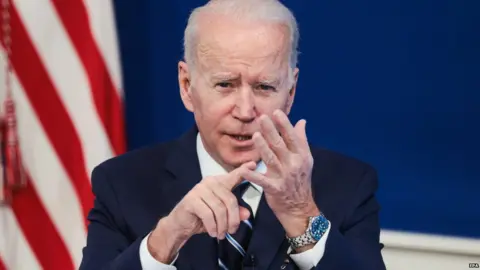 EPA
EPAWhen he took office as the 46th US president, Joe Biden declared that his ascension was the "triumph not of a candidate, but of a cause - the cause of democracy".
Speaking to a divided country in the midst of a pandemic, just weeks after the Capitol riot, he vowed to bring back unity and do "great things".
"We can right wrongs. We can put people to work in good jobs. We can teach our children in safe schools. We can overcome this deadly virus," he said.
A year into his presidency, we take a look at what progress Mr Biden has made, his standing with the American public, and what it all means for the president going forward, with analysis from the BBC's North America correspondent Anthony Zurcher.
How are his approval ratings?
Despite a bitter presidential race, Mr Biden began his term with 56% of the country approving of his performance, according to RealClearPolitics, and having won more than 80 million votes - more than any other president.
But in his first year, he has had a startling slide in fortunes.
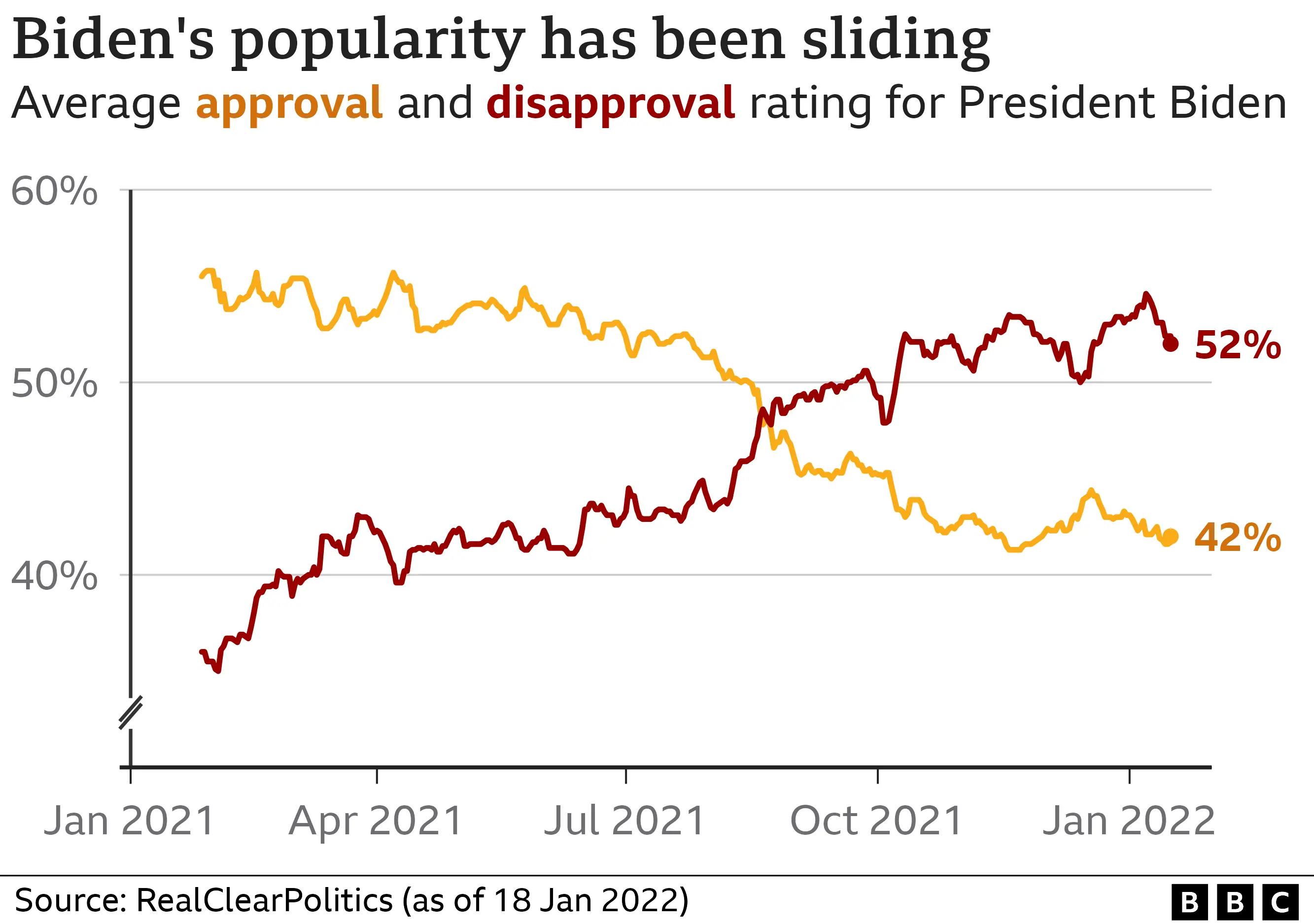
His star began to fall at the time of a widely criticised withdrawal of US troops from Afghanistan and as the Delta variant advanced.
Since then, his approval ratings have fallen further as he has struggled to deliver on his biggest campaign promises to tame the pandemic and restore prosperity for working families.
Compared with other recent presidents, only Donald Trump has had a more disappointing first year - his approval rating fell from 45% on his inauguration day to 35% a year later, according to historical trends by Gallup.
Mr Biden's former boss, Barack Obama, began at a high of nearly 70% when he took office and ended close to 50% a year later. George W Bush began his first term in a similar position to Mr Biden, with approval around 60%, but that rose to nearly 90% after 9/11.
Anthony Zurcher: It's hard to say that the honeymoon is over for Joe Biden because he never really had one. His ratings started modestly positive, without the kind of big inaugural bump most presidents (not named Donald Trump) receive. Now his numbers are in the danger zone for first-term presidents hoping to win re-election - a reflection of near universal Republican dislike and a majority of independents who are souring on him.
Has he got the pandemic under control?
President Biden, who says he carries a card in his pocket with the number of Americans killed by the virus, has made it clear that tackling the pandemic is his top priority.
The main pillars of his Covid plan rested on a widespread vaccination campaign and a massive increase in testing.
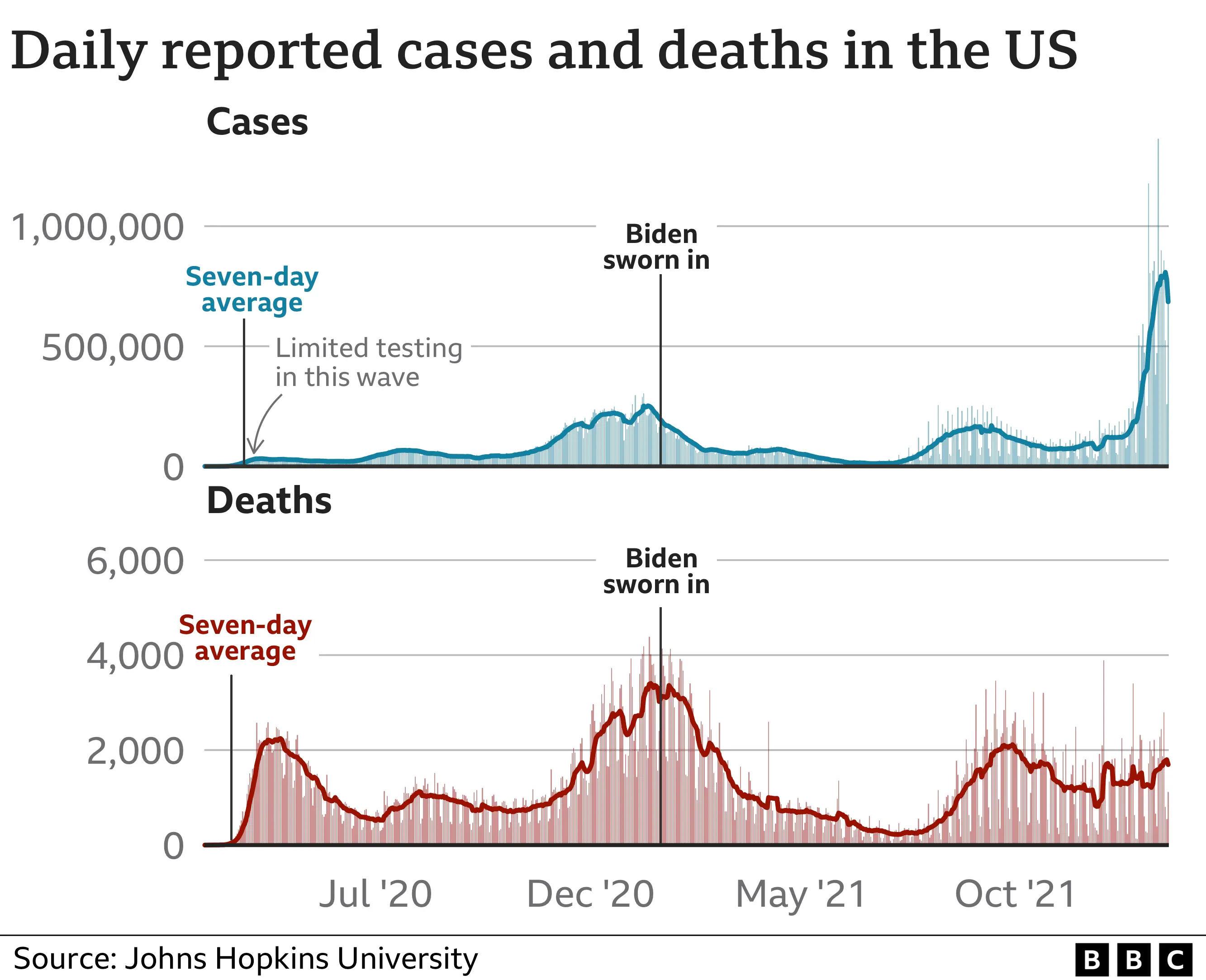
In his first year, he has expanded vaccine availability and currently, about 75% of the US has had at least one dose, and 63% are fully vaccinated. Children as young as 5 have been eligible for the vaccine since November, 80 million booster doses have been administered to help protect against Omicron, and free at-home rapid tests have just become available to order this week.
But the rise of variants and continued opposition to vaccines by some mean the pandemic is far from over. Over the course of the year, the US has undergone three major waves of the virus, and more than 850,000 Americans have died from Covid - the highest recorded national death toll from the global pandemic.
Anthony Zurcher: Mr Biden declared in a July speech that the US could celebrate "independence" from the Covid-19 pandemic. That may sit next to George W Bush's Iraq War "mission accomplished" banner in the hall of premature presidential victory declarations. While the White House will get credit for enacting a massive pandemic relief bill in May, its inability to prepare for the challenges presented by the Delta and Omicron variants have turned what seemed like looming success into a long, hard slog.
How has the US economy fared under his watch?
For many Americans, the number one issue facing the country is the economy. When Mr Biden took office, the pandemic had slowed job growth and the US had faced unemployment woes due to lockdown.
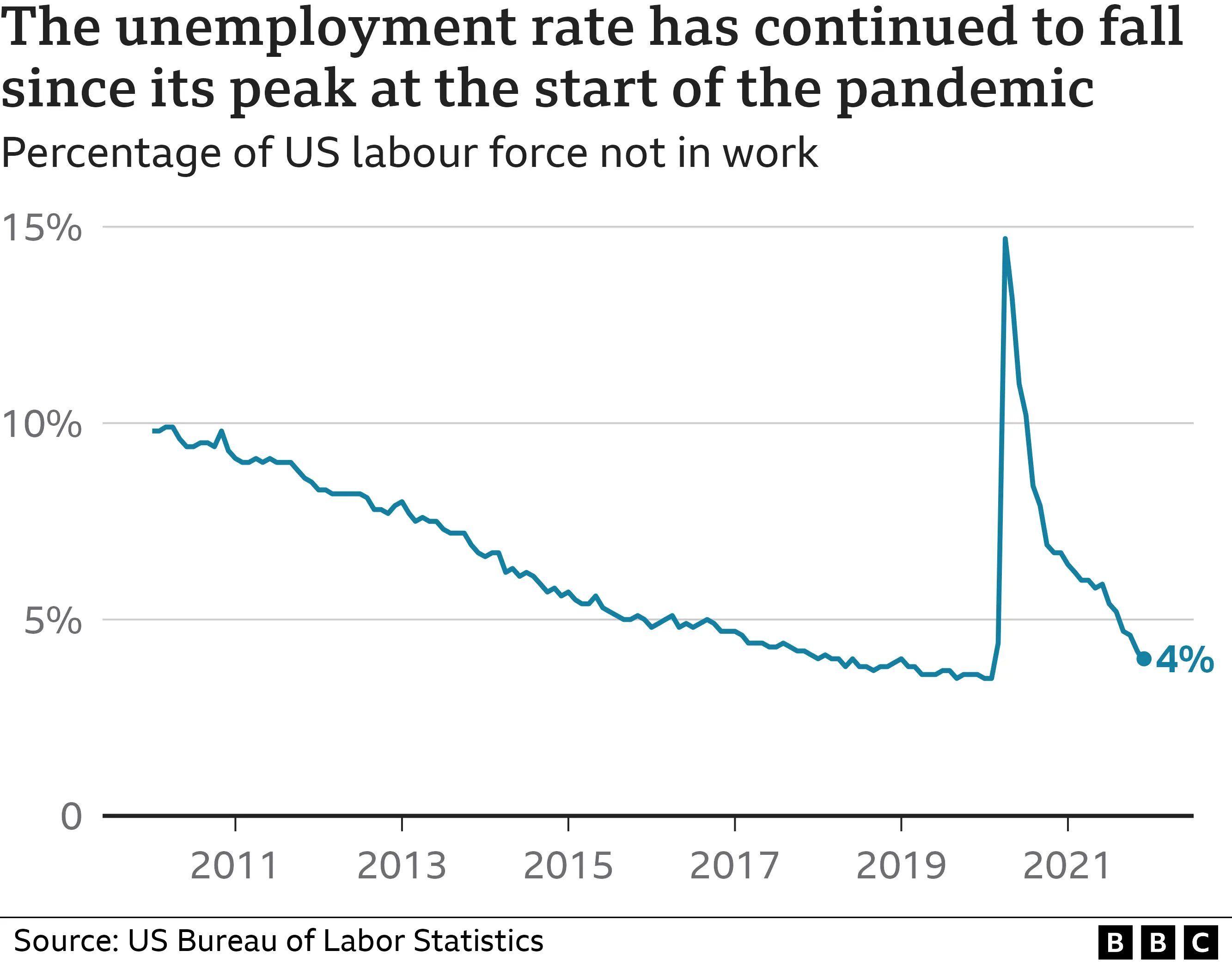
Employment rebounded somewhat over the last year, with 6.4 million jobs added. Though total employment remains lower than its pre-pandemic level, jobless claims have dropped to a near 50-year low.
But other economic headwinds have arisen instead.
Millions of Americans have quit their jobs. Though this shows confidence in the job market, some industries now face a labour shortage, contributing to global supply-chain problems and fuelling rocketing inflation.
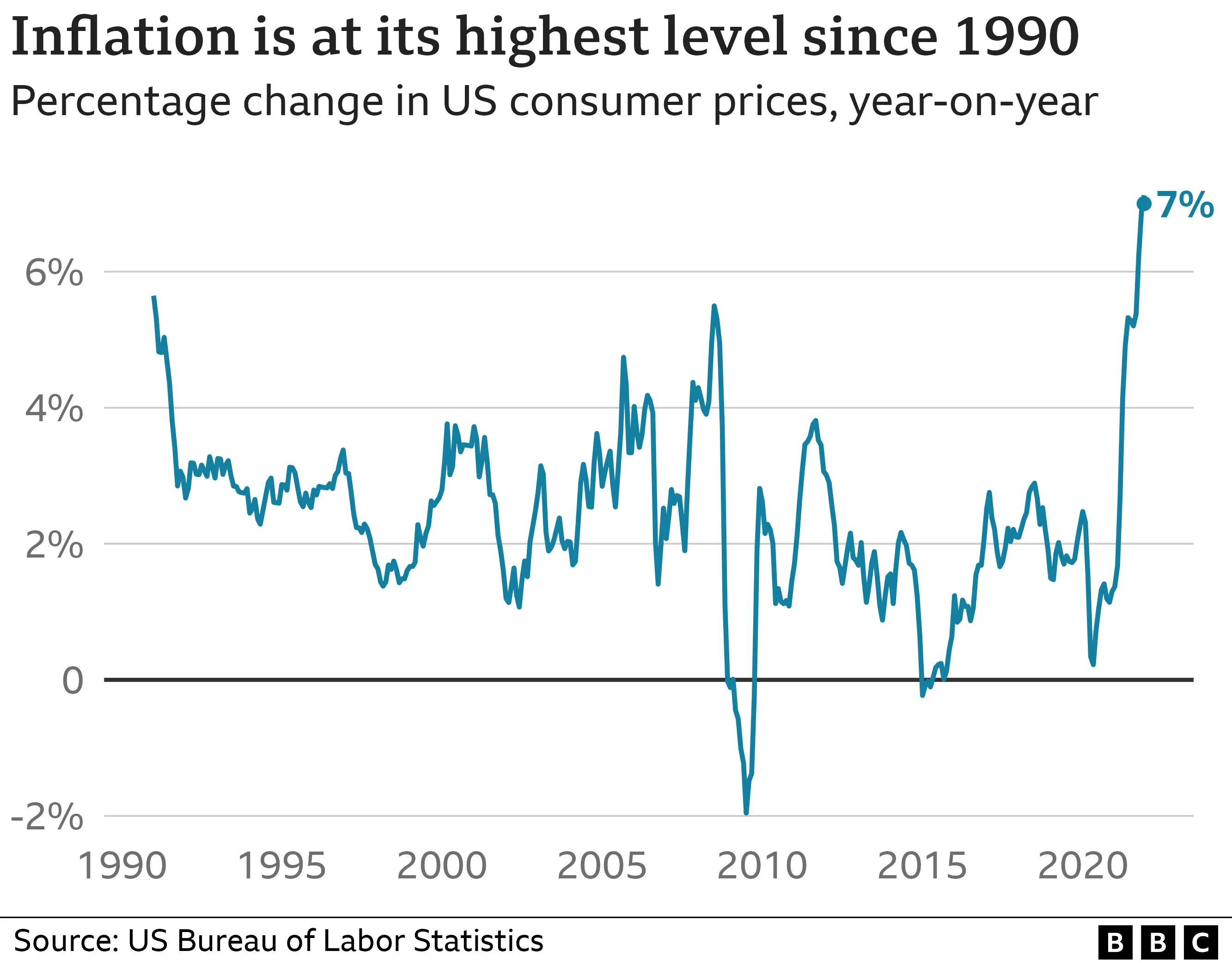
Consumer prices were up 7% from December 2020-21, the biggest increase since the 1980s.
Anthony Zurcher: Mr Biden took office as the US economy was beginning to emerge from a year of pandemic lockdowns. The good news for him was falling unemployment, a booming stock market and record-setting growth. The bad news is that the velocity of the rebound led to supply-chain struggles and inflation levels not seen in decades. If the economy can shake those negative aspects off, his record will look good - but the problems have not been as "transitory" as the administration promised.
Has he delivered on immigration reforms?
One of Mr Biden's promises while running for office was to end the separation of migrant families and detention of children at the border, a Trump-era policy that angered the left.
The president kept his word on ending the so-called "zero-tolerance" policy, and the number of minors held in detention centres has plummeted.
But since he took office, the US has seen an influx of migrants that has created new challenges. In 2021, there were almost 2 million encounters between migrants and US border officers, including 165,000 involving minors.
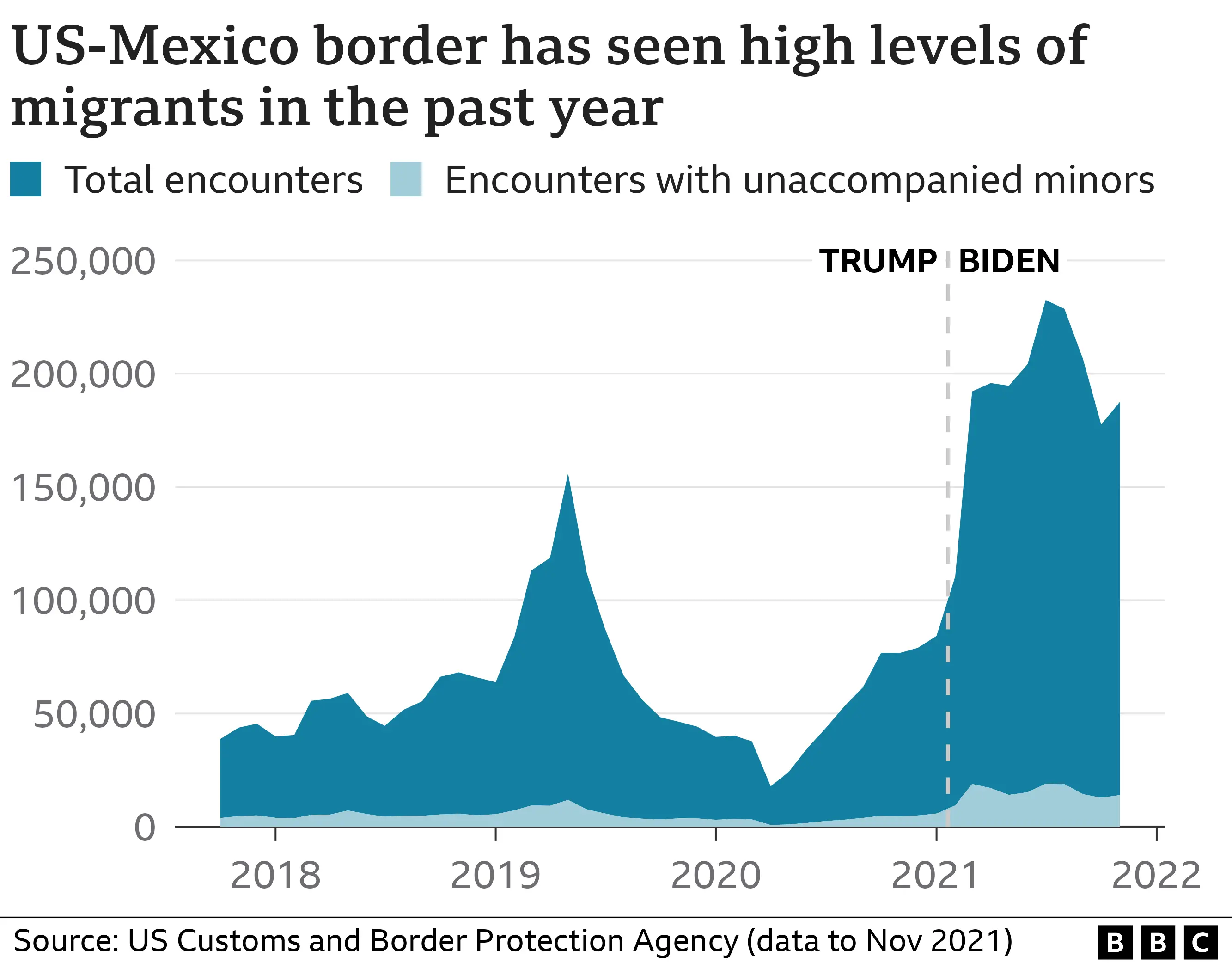
Long-term reforms remain elusive. Mr Biden's plan to offer legal status to an estimated 11 million undocumented people in the US has stalled in Congress, and he failed to overturn a Trump-era policy that made migrants wait in Mexico while their asylum cases were heard in the US.
Meanwhile, he has defended the use of a Trump policy that lets the government automatically expel undocumented asylum seekers in order to stop the spread of Covid-19. He used the so-called Title 42 policy to kick 4,000 Haitians out of Texas, drawing widespread condemnation.
Anthony Zurcher: There was always going to be an uptick in undocumented border crossings after the pandemic depressed migration levels for much of 2020. What was somewhat unexpected was that Mr Biden's immigration reforms - the ones he delivered on - super-charged the migratory crisis, swamping US border facilities unprepared for the surge. The result is that few people have been satisfied with the outcomes.
What are his accomplishments?
Mr Biden was able to achieve some early successes, passing a $1.9tn pandemic relief bill in March.
He also got the US to rejoin the Paris Climate Agreement, delivered 100 million jabs for 50 million people in 100 days and reversed the ban on transgender people in the military.
Despite opposition from Republicans and a fractured Democratic caucus, he managed to pass a $1tn infrastructure bill in November.
A longer term accomplishment may be his prolific appointment of judges - he has named more in his first year than any president since Ronald Reagan.
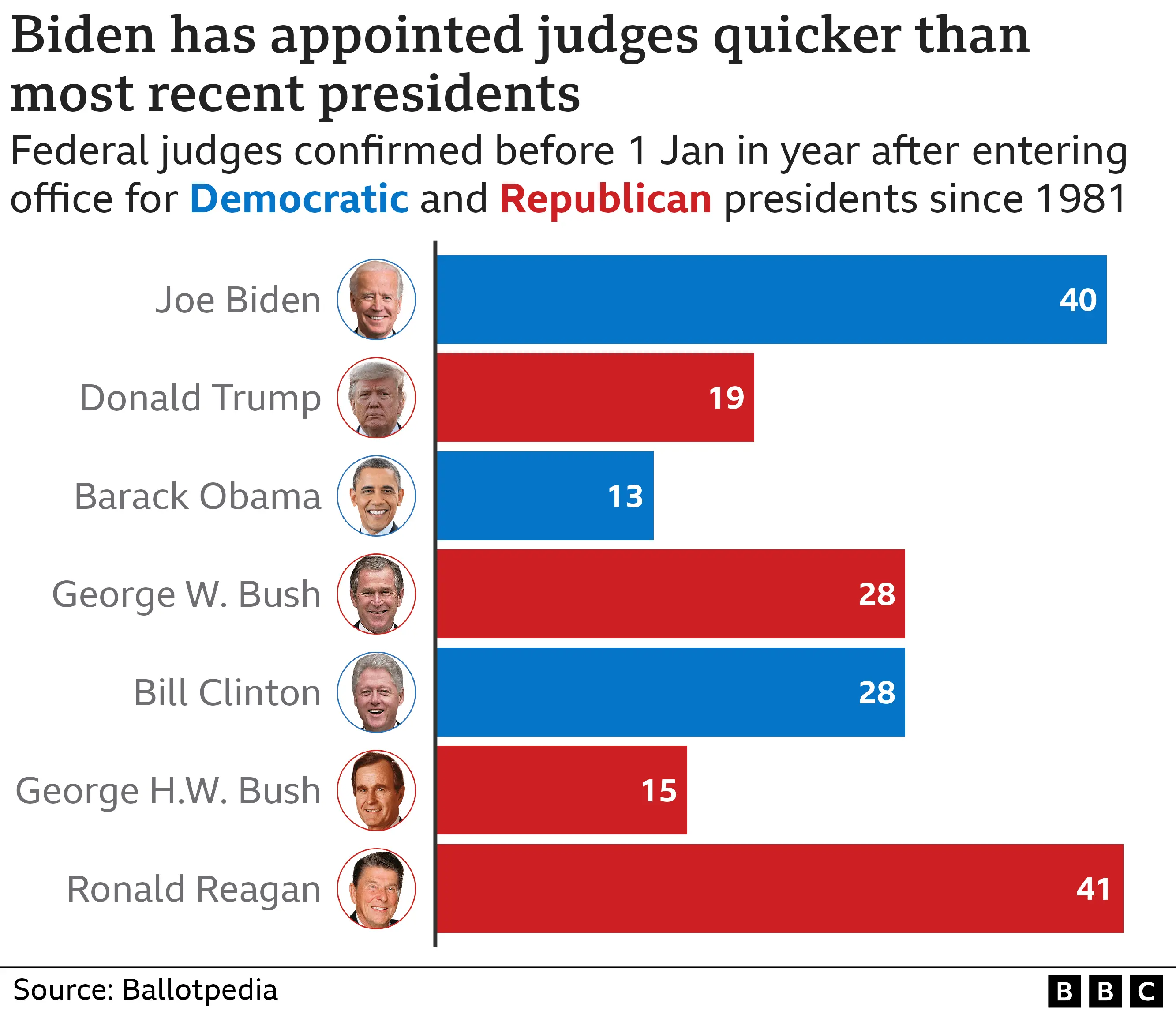
However, Mr Biden was dealt a major blow this week when members of his own party made it clear they wouldn't help him push his voting reforms through Congress. It wasn't the first time. Senators Kyrsten Sinema and Joe Manchin, moderate Democrats in key swing states, have also held back his social-spending bill and climate agenda.
Anthony Zurcher: A lot of the focus over the past year has been on what Mr Biden hasn't accomplished in Congress versus what his administration has succeeded in pushing through. As any parent knows, making a promise you can't keep is a great way to provoke a temper tantrum. Mr Biden spread a lot of promises out on the campaign trail, some of which were unrealistic or depended on circumstances beyond his control. Now he's facing an electorate whose temper is starting to flare.
